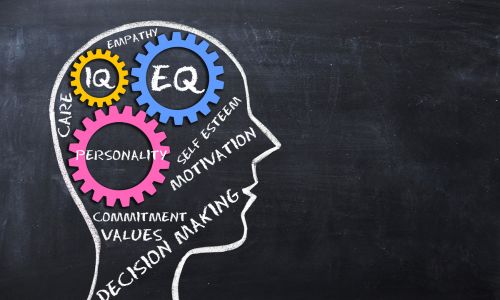
In the ever-evolving landscape of leadership, one attribute consistently stands out as a marker of truly effective leaders: Emotional Intelligence (EI). Beyond strategic minds and innovative solutions, it is the leaders with a deep understanding and adept management of emotions. Let’s dive in.
Defining Emotional Intelligence
Emotional Intelligence (EI) refers to the capacity to identify, understand, and manage emotions in oneself and others. It encompasses self-awareness, self-regulation, motivation, empathy, and social skills, acting as a guiding light.
What Are the Benefits of Leading with Emotional Intelligence?
Enhancing Team Performance
Leaders instilled with EI understand and navigate through their team’s emotional landscape, optimizing morale and consequently, elevating performance levels by ensuring an atmosphere where productivity and positive emotions coexist.
Strengthening Interpersonal Relationships
Interpersonal relationships are fortified by leaders possessing emotional intelligence, building a network of trust, understanding, and respect.
Augmenting Organizational Profitability
Emotionally intelligent leadership correlates with heightened team performance, thereby positively influencing organizational profitability and steering the company towards a trajectory of sustainable growth.
How Can Leaders Incorporate EI into Different Aspects of Their Role?
Navigating Through Organizational Challenges
Emotionally intelligent leaders effectively manage crises by maintaining a composed demeanor and formulating solutions.
Fostering a Culture of Innovation
By valuing emotions and ideas equally, leaders foster a nurturing environment where innovative thoughts are cultivated and explored, propelling the organization towards novel solutions and approaches.
Ensuring Effective Communication
Emotionally intelligent leaders prioritize clear, empathetic, and constructive communication, which not only strengthens internal relationships but also enhances external collaborations and partnerships.
How to Encourage the Development of EI in Those You Are Leading
Modeling Emotionally Intelligent Behavior
Leaders exemplifying emotional intelligence inadvertently facilitate an environment where these emotional capabilities are valued and, in turn, cultivated within their teams.
Embedding EI in Organizational Culture
Emotionally intelligent leaders can weave EI into the organizational culture, thereby establishing a foundation where emotional understanding and empathy become integral components of the company’s ethos.
Facilitating EI Training and Development
Leaders can encourage the progression of emotional intelligence within their teams by introducing EI training and development programs.
Providing Supportive Feedback
Supporting and guiding team members through constructive, emotionally intelligent feedback fosters a learning environment where individuals are encouraged to develop their own emotional intelligence.
Emotional Intelligence as an Invaluable Asset in Leadership
Embracing emotional intelligence within leadership not only propels organizations towards success but also shapes a workplace where individuals are valued. In a landscape where emotional well-being is paramount, incorporating emotional intelligence within leadership practices.




